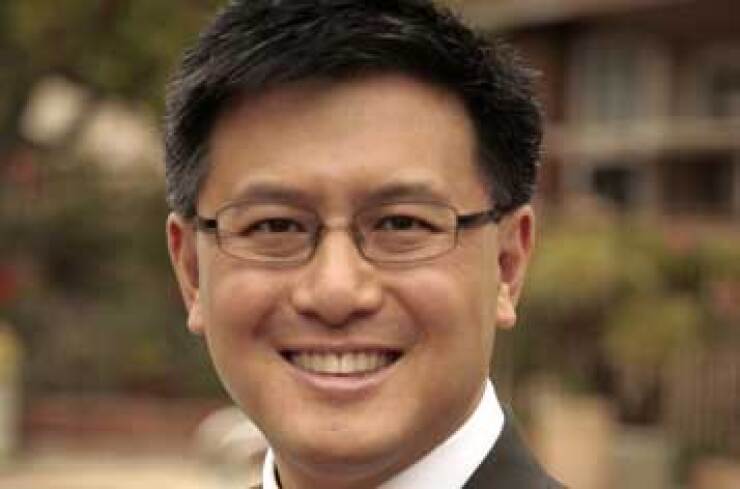
PHOENIX – California State Treasurer John Chiang announced policies Wednesday designed to limit what he calls questionable municipal bond industry bankrolling of local bond election campaigns.
Chiang announced that municipal finance firms seeking state business will be required to certify that they will make no contributions to local bond election campaigns.
California officials are concerned with "pay to play" tactics in which bond counsel, underwriters, and financial advisors are offering to fund or provide campaign services in exchange for contracts to issue the bonds once they are approved by voters. Chiang's move was backed by a coalition of county treasurers and tax collectors.
Those campaign payments or services, often made in connection with local school bond ballot measures, could violate state laws governing the use of bond proceeds and public funds, according to a recent California Attorney General's
"There are unscrupulous Wall Street firms offering to fund local bond campaigns in exchange for lucrative contracts," Chiang said in a statement. "Not only are these pay-to-play arrangements unlawful, they rip-off taxpayers and endanger the integrity of school bonds, which are vital tools for building classrooms and meeting the educational needs of our communities."
The new policy on bond campaign contributions applies to firms and their employees, and includes both cash and-in kind service contributions made either directly or through third parties. Firms that fail to make the pledge will be removed from the state's official list of acceptable vendors and barred from participating in state-issued bonds.
The California Association of County Treasurers and Tax Collectors expressed "solidarity" with Chiang, and California Forward, a nonpartisan group that works for government efficiency, also praised the move.
"Public trust should not be compromised in an effort to secure voter support for local bond projects," said James Meyer, the group's president.
Robert Doty, the president and proprietor of AGFS, a municipal securities litigation consulting firm in Annapolis, Md. who previously worked in California, said a few prominent California underwriter firms might be affected, but believes most have stopped making such contributions.
Doty said such ballot campaign contributions are "a particularly sleazy activity that makes most market participants uncomfortable."
Common Cause, another advocacy group, blasted pay-to-play as undemocratic.
"Pay-to-play government contracts have no place in a democracy," the group said in a statement. "School bond underwriting contracts should go to the most qualified firm, not the one that agrees to make the biggest ballot measure campaign contribution."
A past Bond Buyer data review found a nearly perfect correlation between broker-dealer contributions to California school bond measure campaigns in 2010 and their underwriting of subsequent bond sales, and financial advisors have similarly been accused of using "pay-to-play" tactics.
In 2013 twelve dealer firms asked the Municipal Securities Rulemaking Board to crack down on the behavior, which registrants are required to report to the board.
California currently has 66 underwriters, 26 law firms, and 13 advisory firms in the Treasurer's muni bond business pool.





